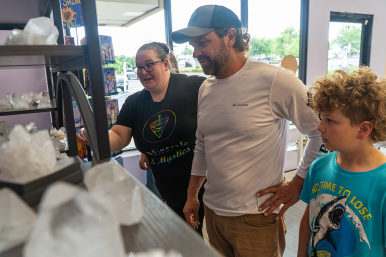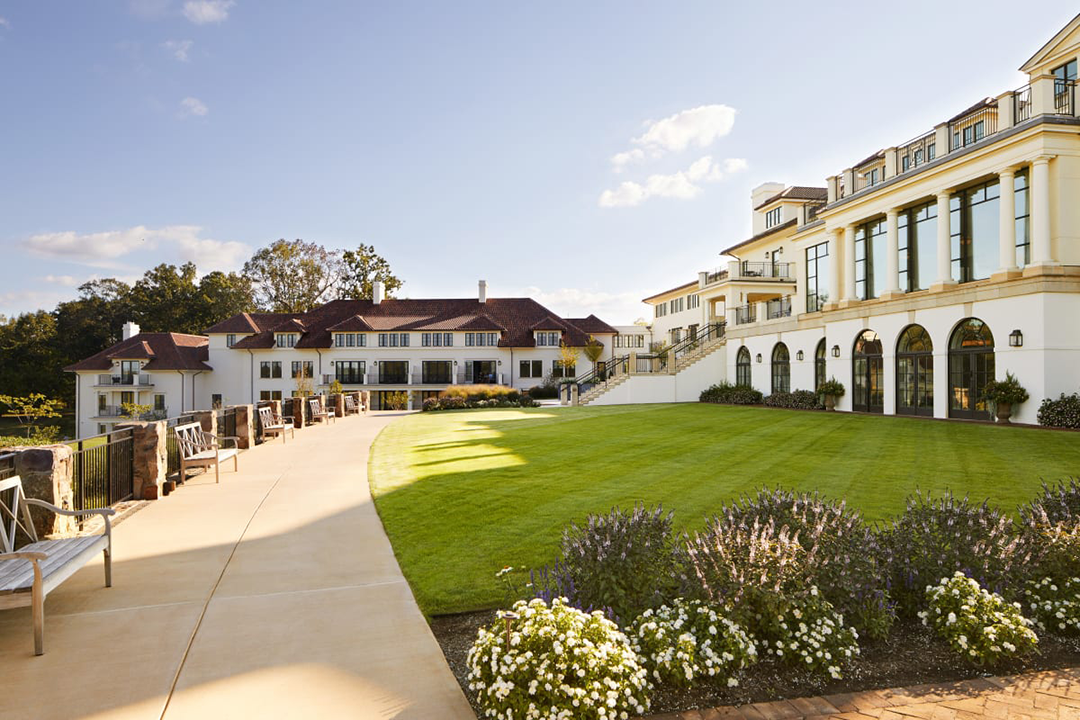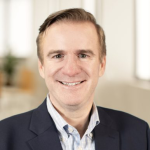Twisted Branch Tea Bazaar on Charlottesville‘s Downtown Mall entertains its Tea Club members with monthly tastings, while nearby New Dominion Bookshop offers story times and “Friday Night Writes,” an event featuring emerging writers.
And about a mile north at McIntire Plaza, outdoor gear and clothing consignment shop High Tor Gear Exchange has hosted outdoor equipment exchanges, workshops and even an art show.
This type of experiential retail is getting some of the credit for luring customers back to the city’s brick-and-mortar stores and giving them a bit of a post-pandemic bump, as vacancy rates in the city’s six primary shopping districts have dropped to the lowest point since January 2020, according to a report released in January by the Charlottesville Office of Economic Development.
“The general trend is that the vacancy rate has dropped a bit,” says Chris Engel, director of economic development for the city, although “there’s a fair amount of fluctuation. There’s been continual churn since the pandemic.”
In January 2020, just ahead of the pan-demic, the city had 20 vacancies among 450 retail properties, or a 4.47% vacancy rate. The following year, the number jumped to a 7.66% vacancy rate. As of January 2024, the city’s retail districts had 19 vacancies — a 4.2% vacancy rate.
The report surveys retail properties within the city’s six major shopping areas: Barracks Road; the Downtown Mall; McIntire Plaza; Preston Plaza; Seminole Square; and The Corner. The twice-yearly retail vacancy study is the 32nd such report conducted by the city’s economic development office.
Engel cites the value of experiential retail in the rebound. Business magazine Fast Company has noted it too, reporting in February that 80% of customers believe that the experience a company provides is just as important as its products and services. Examining consumer trends shaping retail this year, Fast Company recommended hosting “events, entertainment or classes. Whatever it is, make it something unique they can’t get from other retailers — or from shopping online.”
Here’s a look at how retailers across Charlottesville are responding to this trend and how the six shopping districts are faring:
Downtown Mall
One of the newest experience-rich stores in Charlottesville is The Beautiful Idea, which opened on the Downtown Mall in mid-September 2023. The shop is “one-third radical bookstore, one-third things like shirts and greeting cards. And the front third is flea market-style, with LGBTQ jewelry and artwork,” says co-owner Joan Kovatch, adding that a lot of the store’s art is “pretty politically radical” and “a little on the spicy side.”
More importantly, the store aims to be a community hub “with a queer focus. We want people to spend time and hang out. We want to be an actual welcoming space.”
None of Beautiful Idea’s three co-owners have owned a brick-and-mortar store before, but they’re learning the advantages of “selling an experience,” Kovatch says. The store hosts movie nights, book discussions and offers trainings on topics such as overdose prevention and online security.
Being located on the Downtown Mall has been great for foot traffic, according to Kovatch. Charlottesville’s pedestrian mall, which opened nearly five decades ago on the city’s historic Main Street, features community events and workshops and includes an outdoor music and entertainment venue.
The Downtown Mall area’s vacancy rate has dropped from 5.79% to 3.14% since the July 2023 economic development office’s study; there were six vacancies among the district’s 191 storefronts as of January.
Beautiful Idea’s neighbors on the mall include C’ville Arts, Daedalus Bookshop, Magpie Knits, Jean Theory and Decades Arcade, featuring vintage pinball machines and arcade games.
There are restaurants nearby, and when there are shows at nearby Paramount Theater and Ting Pavilion, “we see a lot more traffic,” Kovatch says. “There’s local traffic, but a lot comes from people visiting,” especially during the holidays. “It’s been bigger than we anticipated. We’ve been able to set some money aside for projects. Our longer-term goal is to have a community center.”
Seminole Square
Minerals & Mystics was “a walk-in place, but we’ve become a destination store. People come for who we are. They say, ‘We had to find out what your name is about,’” says owner Leah Williams.
The store, which sells sterling silver jewelry, incense, candles, rocks and minerals, also has expanded the number of experiences it’s able to offer customers since changing locations to a bigger storefront in Seminole Square this spring.
“Our space more than doubled when we moved. We have a coffee shop. We offer classes. Our goal is to offer holistic health in one area where people can have a moment of peace,” Williams says.

The bigger space, tucked between a nail salon and a barber shop, is in a better location, offering more visibility, she adds. “As you come into the shopping center, you can really see us now. We’re already seeing some new faces.”
Other stores in the shopping center include Dover Saddlery, Super Shoe and Plan 9 Music.
Williams also hopes that new customers will be drawn to Seminole Square by a substantial renovation being undertaken in the shopping district.
Charlottesville-based Great Eastern Management Co. owns the shopping center, which includes a former Giant store and other commercial sites. Great Eastern plans to redevelop part of Seminole Square’s nearly 24 acres into a mixed-use development with at least 350 apartments.
“They’re moving toward groundbreaking. It probably will be early in 2025,” Engel says. “A lot of things have to come together to get a big project like that off the ground.”
Seminole Square, which opened in 1986, “has been in a rut,” Williams says. “The city wants to improve livability on Route 29. I’ll be interested to see how that will change things.”
Since part of the site is set to become an apartment complex, “we’ll see if people shop where they live.” In the meantime, Williams says, she isn’t daunted by the disruption. In her view, “construction makes people curious. I think we’ll see a lot of interest. It’s something new and different.”
The Corner
The number of retail vacancies at The Corner, located across the street from the University of Virginia, remains “pretty constant,” according to Engel.
While the retail vacancy rate rose from 3.28% in January 2020 to 4.91% in January 2024, retail locations at The Corner continue to benefit from proximity to U.Va. and UVA Health’s University Hospital, according to the city economic development report.
There are three vacancies out of 61 storefronts, up by just one vacancy from July 2023.
The Corner has attracted major chains such as CVS and fast food restaurant Raising Cane’s, which opened last October, but “if you calculate the figures, you’ll find … more stores [in the district] are small and locally owned,” Engel says.
For example, family-owned Mincer’s, which sells U.Va.-branded apparel, gifts and accessories, has been open since 1948.
One of the newest additions to The Corner is actually a return: Littlejohn’s, a New York-style deli, first opened in 1976 but closed during the pandemic. In mid-April, it reopened in the same space after four years.
“We’re fortunate to see a constant cycle of new small businesses,” Engel says, noting that Chaps Ice Cream, an old-fashioned ice cream parlor located on the Downtown Mall for more than 35 years, recently opened a second location at The Corner.
The Plazas
Vacancy rates remain stable at two small Charlottesville shopping centers, according to the economic development report.
Preston Plaza, a small shopping center in the middle of Charlottesville that was built in 1968, has no vacancies, according to the report. That’s been unchanged since January 2021. The plaza has 10 storefronts, including a bakery, an upscale consignment shop and several restaurants.
And McIntire Plaza, just north of the Charlottesville historic district, has seen miniscule changes since the July 2023 vacancy study. It currently counts just a single vacancy out of its 59 storefronts, which house antique stores, a jewelry store, a glass gallery, a coffee shop and math tutoring and custom-sewing services.
Given the location and low lease rates, that vacancy is expected to be filled quickly, according to the economic development office. McIntire Plaza currently has a 1.69% vacancy rate, which is anticipated to drop back to 0% in the next report.
What sets the two shopping areas apart from others in the city, says Engel, is that they offer “more accessible price points to local owner-operated businesses.”
Barracks Road
Martine Funari, founder and CEO of Fluffy’s Pet Shop, has been at Barracks Road
Shopping Center for five years. The store sells natural pet treats and vitamins, toys, accessories and pet outfits, including Halloween costumes. “We even have things for cats. We have cakes for cats for birthday parties in the shape of a fish. They’re cute as a button,” she says.
The outdoor strip mall located on U.S. Route 29 opened in 1957 in Albemarle County before the city annexed the land it sits on six years later. The shopping center got a facelift about a dozen years ago, with the removal of its concrete canopy. New design elements included a trellis structure, lounge seating areas, screening walls and a central fountain.
The city’s latest retail vacancy report finds an 8.33% vacancy rate at Barracks Road, up from 7.14%. That’s partly due to the closing of a 36,000-square-foot Bed Bath & Beyond store, Engel says. The big-box home goods chain filed for bankruptcy in April 2023. Barracks Road has 84 storefronts. The January report shows seven vacancies.
The COVID pandemic was hard on business, says Funari. The store was closed for more than four months amid the pandemic, but the pet shop has “a lot of regular customers, mainly connected with the university,” she says, and the shopping center is doing well overall. “There’s a mix of big stores, and there are a few mom-and-pops like us. It gives the place good equilibrium.”
Soma — a women’s lingerie, swimwear and sleepwear shop — opened in December 2022.
“Business really has picked up. We have a great following already,” according to Joann Rock, sales lead for the Soma store. A Chico’s FAS brand, Soma had been part of a nearby Chico’s women’s clothing store before opening in the separate storefront.
A big benefit of the Barracks Road location is the overall shopping experience, according to Rock. “People have shopped here for years and years. There’s a mix of clientele, a blend of stores. It’s a stable environment.”
A teenager who goes to Barracks Road to shop at Aerie, an American Eagle brand for young women, “might be with her mother who goes to us or goes to Chico’s,” Rock says. “I think that mix is doing well for us.”

Charlottesville at a glance
Widely known as home to Thomas Jefferson’s Monticello estate and the University of Virginia, the Charlottesville region is located about 65 miles west of Virginia’s state capital. The city was founded in 1762, with the Jefferson-designed U.Va. campus founded 57 years later. The region is popular for vineyards, breweries and distilleries, as well as for access to the Blue Ridge Mountains. The area’s largest industries include higher education, health care, defense, hospitality and tourism.
Regional population1
- Charlottesville: 51,132
- Albemarle County: 116,148
- Buckingham County: 16,673
- Fluvanna County: 28,214
- Greene County: 21,370
- Orange County: 37,629
- Nelson County: 14,713
Major employers
- University of Virginia/UVA Health
- Albemarle County
- Sentara Health
- City of Charlottesville
- U.S. Department of Defense
- Northrop Grumman
- Crutchfield Corp.
- CFA Institute
Major attractions
Monticello, the home of America’s third president and author of the Declaration of Independence, is a UNESCO World Heritage Site that draws visitors from around the globe. You can see the distinctive Jefferson-designed Rotunda at U.Va. Another must-see for history-minded visitors is Highland, the Albemarle estate of President James Monroe. Charlottesville’s Downtown Mall is a good place to visit for eating, shopping and socializing. Take in the natural beauty of the surrounding Blue Ridge Mountains along Skyline Drive and the Blue Ridge Parkway and at Shenandoah National Park. Hikers will savor Instagram-worthy views from Spy Rock and Humpback Rocks. Take a break from picking apples and peaches at Carter Mountain Orchard with live music and apple cider doughnuts. Or take a tasting tour through area vineyards like Jefferson Vineyards, Trump Winery, Blenheim Vineyards and Pippin Hill Farm & Vineyard.
Major convention hotels
- Boar’s Head Resort
168 guest rooms and suites;
22,000 square feet of meeting/event space - Kimpton The Forum Hotel
208 guest rooms and suites;
22,000 square feet of meeting/event space - Omni Charlottesville Hotel
205 guest rooms and suites;
12,441 square feet of meeting/event space
Boutique/luxury hotels
- Albemarle Estate at Trump Winery
- The Draftsman
- Graduate Charlottesville
- Keswick Hall
- Oakhurst Inn
- Quirk Hotel Charlottesville
Notable restaurants
- C&O
French, candorestaurant.com - Ivy Inn
American, ivyinnrestaurant.com - Orzo Kitchen & Wine Bar
Mediterranean, orzokitchen.com - Smyrna
Mediterranean-Aegean, smyrnacville.com - The Ridley
Southern, ridleyva.com
1 July 2023 estimates from University of Virginia Weldon Cooper Center for Public Service based on 2020 U.S. Census Bureau data





